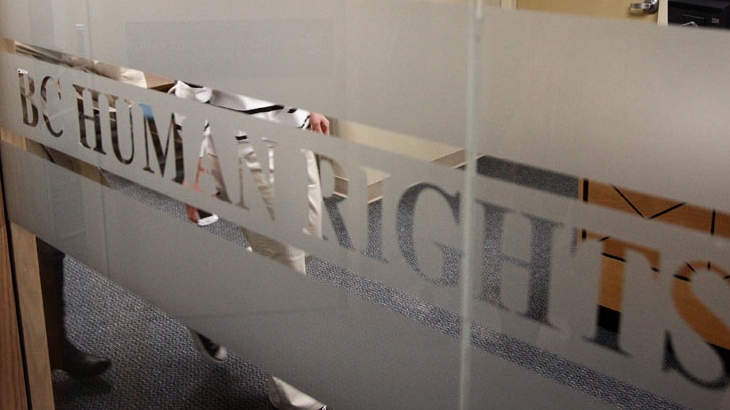B.C. tribunal's award of $150K to Indigenous mom in discrimination case being challenged by child welfare agency
 A B.C. Human Rights Tribunal hearing room is shown in this file image from March 29, 2010. (THE CANADIAN PRESS/Darryl Dyck)
A B.C. Human Rights Tribunal hearing room is shown in this file image from March 29, 2010. (THE CANADIAN PRESS/Darryl Dyck)
A Vancouver child welfare agency is appealing a B.C. Human Rights Tribunal ruling that found an Indigenous mom's children were wrongfully taken from her, awarding her $150,000 in damages for discrimination.
The Vancouver Aboriginal Child and Family Services Society has filed a petition in B.C. Supreme Court seeking a judicial review of the November 2022 decision, alleging the tribunal overstepped its authority and ruled on matters outside of its jurisdiction.
"We understand that this step is very difficult, but it is necessary to ensure Indigenous children are protected as intended by the legislation and our decision in no way reflects on the individual who filed the HRT complaint,” said the agency's board chair Linda Stiller in a statement posted online.
“While we recognize the pain the complainant identified during the hearing, our duty is to ensure that children’s rights are also protected.”
VACFSS is one of the agencies in B.C. that is given responsibility for child protection matters in Indigenous communities and has the authority to apply and enforces the Child, Family and Community Services Act. The delegation of this authority to non-governmental organizations is meant to respond to the vast over-representation of Indigenous children and youth who are in government care.
As the tribunal decision noted, 66 per cent of children in care in British Columbia are Indigenous, even though Indigenous children make up only 10 per cent of the province's child population.
"VACFSS regrets having to file a judicial appeal on this case, particularly as an Indigenous-led agency committed to restorative practice," Stiller said in her statement about the appeal.
The petition to the court outlines several ways in which the agency alleges the tribunal overstepped, including that it made determinations on child protection matters, undermined provincial court orders, and denied VACFSS the right to a fair hearing.
The agency will also be challenging the amount of compensation ordered.
"Given the significant legal issues raised by VACFSS in the judicial review, the organization has also asked that the amount of the financial award be reconsidered by the court," the statement continues.
THE TRIBUNAL DECISION
The case was brought by a mother referred to by the initials R.R. whose four children were placed in foster care, where they remained for more than two years.
In R.R.'s case, the tribunal found "VACFSS did not have a reasonable basis to conclude that R.R.’s children were in need of protection."
Tribunal member Devin Cousineau ruled that the apprehension of the woman's children and the subsequent limits on her access to them – which included months-long periods of no contact whatsoever – was discriminatory, rooted in stereotypes about and prejudice against her as an Indigenous mom who had experienced mental health issues.
"This is an unprecedented complaint. It exposes systemic forces of discrimination and their profound impacts on an Indigenous mother," she wrote.
Lawyer Aleem Bharmal with the Community Legal Assistance Society, who served as R.R.'s co-counsel, questions the agency's decision to appeal.
"Our client feels re-traumatized by this decision," he said in an email to CTV News.
"We do not agree that this step is in the best interest of Indigenous children and, rather, that allowing this human rights decision to stand and complying with it would have helped improve the agency’s services, and the child welfare system more generally, to be less biased and more equitable."
He says the organization plans to "vigorously defend" the initial ruling in B.C. Supreme Court.
CTVNews.ca Top Stories

Canada could impose tariffs on U.S. steel, orange juice in response to Trump threat
Canadian officials are narrowing a list of American products to target in the event the federal government must respond to U.S. tariffs on Canadian goods, CTV News has confirmed.
Convicted Jan. 6 rioter arrested as fugitive in Whistler, B.C.
An American citizen convicted of participating in the Jan. 6, 2021, riot on Capitol Hill who said he was seeking asylum in Canada has been arrested as a "fugitive from U.S. justice," according to authorities.
Can the U.S. really make Canada the 51st state?
Talk of Canada becoming the 51st American state has raised an existential question on this side of the border: Could it be done? Could the maple leaf make way to the stars and stripes? According to several experts, it may be possible, but not painless.
L.A. wildfires continue to devastate area, Canada prepared to offer expertise
A series of wildfires are searing through the Los Angeles area, forcing many to evacuate their homes. Here's everything that happened throughout Jan. 8.
'True when I said it, true today': former Canadian PM Harper pushes back against Trump on social media
Former Canadian Prime Minister Stephen Harper doesn’t find president-elect Donald Trump’s jibes about Canada becoming the 51st U.S. state very amusing.
Ontario Premier Doug Ford says he is 'OK' after OPP vehicle he was in was 'sideswiped' in Highway 401 collision
Ontario Premier Doug Ford was uninjured after an OPP vehicle he was travelling in was involved in a collision on Highway 401 earlier today.
At least 60 University of Guelph students sick as 'cluster of illness' hits residence
The University of Guelph is dealing with what they are calling a ‘cluster of illness’ among students living in residence.
Energy minister 'committed' to consumer carbon tax as he considers Liberal leadership
Energy and Natural Resources Minister Jonathan Wilkinson says he would be 'committed' to the consumer carbon tax should he become Liberal leader and prime minister, despite the policy’s unpopularity.
New ranking suggests Canada passport among 'top 5 losers' in the world
A new global ranking may raise doubts about Canada's reputation of being open to other countries.
































